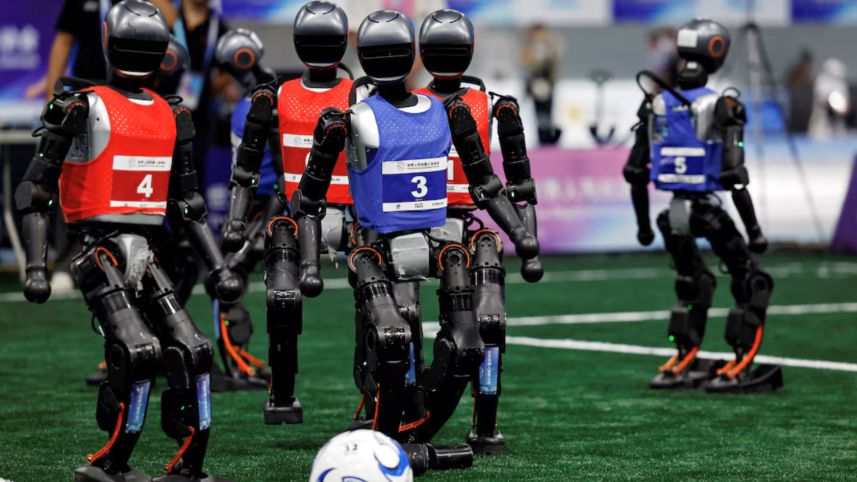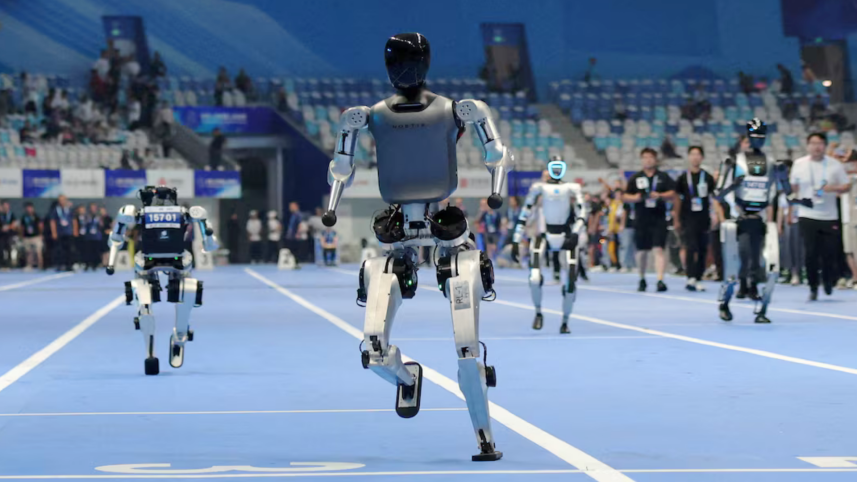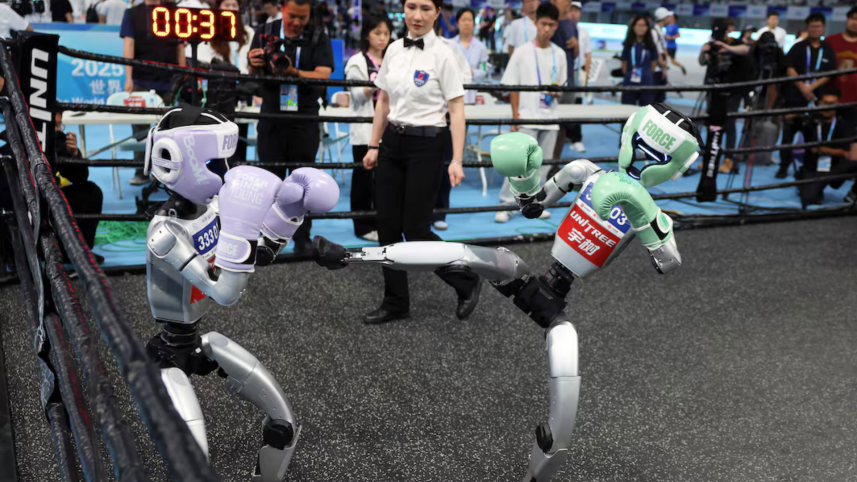Robots stumble, sprint, and spar at World Humanoid Robot Games

The first-ever World Humanoid Robot Games was recently held in Beijing, where more than 500 humanoid robots from around the globe went head-to-head in a mix of sporting clashes and practical challenges.
The three-day event, held from August 15 to 17, 2025, featured 280 teams from 16 countries, including the United States, Germany, Japan, and Brazil. Together, they competed in 26 events ranging from football, athletics, and boxing to real-world tasks such as cleaning, sorting medicines, and handling materials.
While organisers described the competition as a showcase of advanced technology, many events highlighted the challenges that remain in humanoid robotics. During football matches, robots frequently collided and fell, while in the 1,500-metre run, one competitor collapsed mid-sprint and another withdrew after its head detached during the race.
"Keeping the head balanced while in movement is the biggest challenge," said Wang Ziyi, a 19-year-old student from Beijing Union University, who helped design one of the competing robots, as per a report by The Guardian on the matter.

The spectacle drew large crowds, with tickets priced between 128 and 580 yuan (around $18–$81). Audiences cheered whenever robots managed to get back on their feet without human assistance, with some even applauding failed attempts that hinted at future progress.
For participants, the event was about more than winning medals. "We come here to play and to win. But we are also interested in research," said Max Polter, a member of Germany's HTWK Robots football team, as per a report by Reuters, "If we try something and it doesn't work, we lose the game. That's sad, but it is better than investing a lot of money into a product that failed."
Of the 280 teams, 192 were affiliated with universities and 88 came from private enterprises, including leading Chinese firms such as Unitree and Fourier Intelligence, adds the Reuters report. Robots from domestic manufacturers such as Booster Robotics were also widely used, underlining Beijing's push to showcase its own technological ecosystem.

As per the reports, organisers stressed that the games provide valuable data for refining humanoids, particularly in areas like decision-making, coordination, and motor skills. Football matches, for instance, could help train robots to work together in factory assembly lines, while cleaning and medicine-sorting events mimic real-life tasks they might soon take on in hospitals or homes.
The competition is part of China's broader ambition to become a global leader in humanoid robotics. The government has set a target of building a world-class humanoid industry by 2027 and has invested billions in artificial intelligence as it contends with an ageing population and growing tech rivalry with the US. Recent months have also seen Beijing stage the world's first humanoid robot marathon, open robot retail stores, and host major robotics conferences.
For now, the humanoid athletes may wobble, stumble, and fall. But their debut in Beijing suggests that China is betting big on turning these stuttering prototypes into the workforce - and entertainers - of the future.



 For all latest news, follow The Daily Star's Google News channel.
For all latest news, follow The Daily Star's Google News channel.
Comments